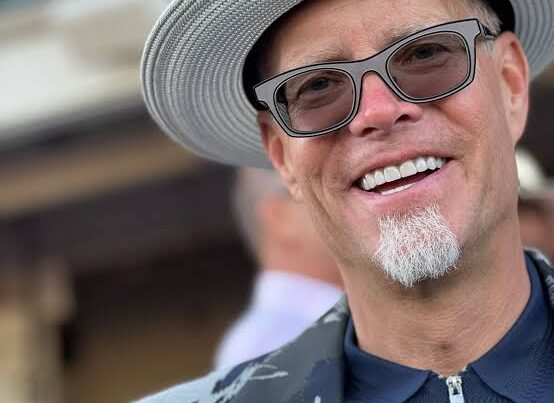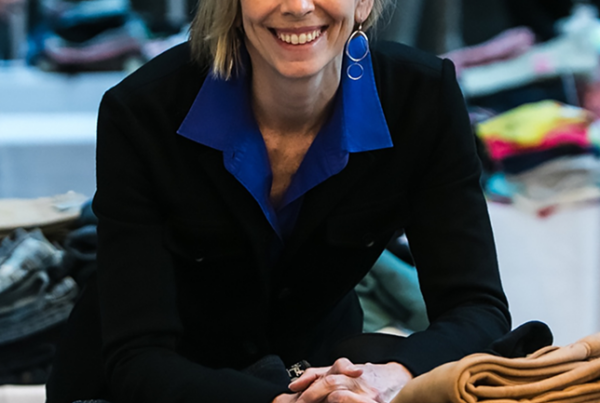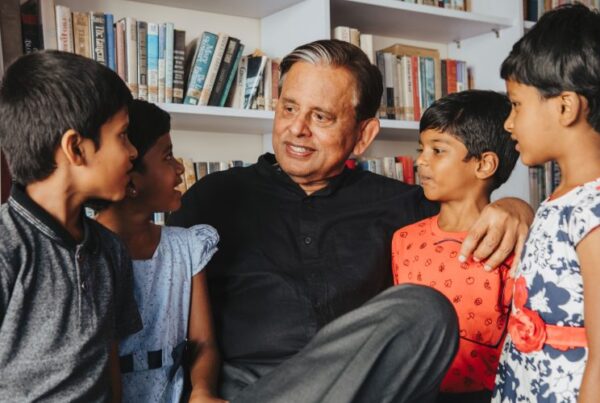Podcast: Play in new window | Download
Subscribe: RSS
How can we use technology to amplify human abilities and make better decisions?
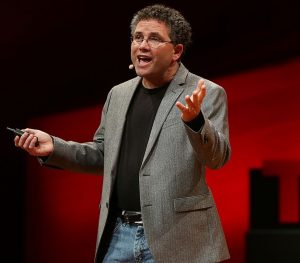
Dr. Louis Rosenberg
Dr. Louis Rosenberg founded Unanimous AI to pursue a crazy idea – that we can amplify the intelligence of human groups by developing a new form of AI based on the biological principles of Swarm Intelligence. The idea panned out, resulting in Swarm AI technology, a powerful method for amplifying group intelligence. It has been validated by over 20 academic papers, has been funded by NSF, and was named “AI Innovation of the Year” at South By Southwest.
Dr. Rosenberg began his technological career at Stanford University where he earned his Bachelor’s, Master’s, and PhD degrees. His doctoral work focused on robotics, virtual reality, and human-computer systems. While working as a graduate researcher at the U.S. Air Force Research Laboratory (Armstrong Labs) in the early 1990’s, Rosenberg created the ‘Virtual Fixtures’ platform, the first immersive Augmented Reality system ever built.
Rosenberg then founded Immersion Corporation to pursue virtual reality technologies. As CEO of Immersion, he brought the company public (NASDAQ: IMMR) in 1999. Rosenberg also founded Microscribe, maker of the world’s first desktop 3D digitizer – the Microscribe 3D – which has been used in the production of countless feature films, including Shrek, Ice Age, and A Bugs Life (acquired in 2009). Rosenberg also founded Outland Research, a developer of advanced interfaces for mobile devices and augmented reality (acquired in 2012). He has also worked as a tenured Professor at California Polytechnic (Cal Poly), teaching engineering, design, and entrepreneurship.
A prolific inventor and researcher, Louis Rosenberg has been awarded more than 300 patents worldwide for his technological efforts in virtual reality, augmented reality, artificial intelligence, and human computer-interaction. He currently lives in sunny California with his wife and kids, as a longtime vegan and friend of all animals, big and small.
In today’s conversation with us, Dr. Rosenberg explains the dangers of traditional AI, how swarm technology works in nature, and how we can apply it to making better decisions as a people group.
Key Takeaways
- Traditional AI is pushing to replace people with algorithms. But there is a way to keep people in the loop.
- The reason why birds flock, fish school and bees swarm is because they can make much better decisions in groups than they can individually. It helps their ability to survive. They are much smarter together than alone.
- Swarm AI is a new form of AI that connects people and algorithms to get significantly smarter, make much better decisions together than they could on their own, while keeping people as part of the process.
- When you want to use AI to solve a real problem you have to start with a good data set that is up to date and accurately reflects the problem you’re looking to solve. For most problems in the political, financial or business world it’s very difficult to get a data set that works.
- Most of the data used is out of date almost immediately, and it’s really only a simplification of what people think and feel. For example, how people click and connect on the internet does not reflect their true feelings.
- AI that makes predictions about people, what political messages are going to work or what products people are going to want, is all based on data that doesn’t reflect people’s true thoughts and feelings. It’s also infused with a lot of biases.
- For example, Google and Amazon have reduced you down to a set of data that it thinks you want, so when it wants to give you an advertisement it makes use of this estimation. Then it becomes a self-fulfilling prophecy where you’ll probably buy something within its selections, which then reinforces its model.
- When this is applied to news, it becomes a self-fulfilling prophecy and we end up polarizing a population.
- Polls are polarizing, finding and reinforcing differences. Nature does the opposite. In a school of fish, there are no leaders and no followers. Everyone is equal, and they make decisions about their survival together as a system.
- Over millions of years all the schools of fish that split in two, that couldn’t agree on which way to go, died out. The rest enabled through this process of swarm intelligence to make decisions that are optimized for the group as a whole.
- Whereas we humans make decisions in large groups but we’ve made this method of polling which is polarizing, showing our differences and reinforcing those differences. We then we become that school of fish that splits in two or just can’t make a decision.
- In a study with Stanford Medical School and a group of radiologists, when they worked together as a swarm, we reduced their diagnostic errors by 33%, vs if they made these decisions on their own or if they took a vote.
- In a study with Oxford University when a group of financial forecasters came together as a swarm, they were able to make 36% more accurate forecasts about the price of gold, oil and the stock market than when they were working alone.
- A swarm creates a much better mix of the group’s insights, plus it is interactive so individuals experience the group converging on the answer. There’s more buy-in and they are collectively more satisfied with the decision. Even if it’s a large group, everyone feels like they are consequential – like they had an impact – because they were working together and they experienced it.
- With a polling system, they put their answer in a black box and if it doesn’t come out the way they wanted, they feel like nobody listened to them.
- With swarming, when you have a group of people, you can make them smarter but you can also make them wiser where they make decisions that are really better for the whole group.
- Hierarchy hurts decision making. However, in a swarm everyone is equal and anonymous, and therefore honest, because they’re not trying to say what they think their superior wants to hear.
- With a swarm, the group can prioritize a set of issues in a way that will be more agreeable to the whole group than if they just argue about it, take a vote or poll, or try to do it statistically.
- xPrize has used the software to get their visioneers together and prioritize the most significant problems they want to solve.
- Diverse groups make much better decisions than monolithic groups.
- In a study of sports, a group of diverse fans were significantly more accurate in predicting the games than the experts who were getting paid to do it as sports writers.
- People are smart and we shouldn’t replace them with algorithms.
- Yes AI is powerful, and we can’t lose people in the process, with their intuition, emotion and insight.
Additional Resources 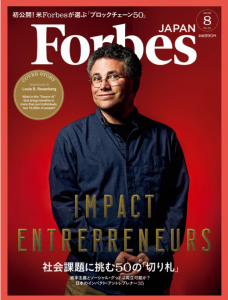
TED TALK: New Hope For Humans In An A.I. World
Connect With Dr. Louis Rosenberg
- Website: https://unanimous.ai
- LinkedIn: https://www.linkedin.com/in/louis-rosenberg-025851132
Did You Enjoy The Podcast?
If you like this episode let us know! Reviews for the podcast on iTunes are greatly appreciated. This helps us reach more entrepreneurs seeking to make a positive impact in the world. If you received value from this episode, it would mean so much if you could take a moment and leave your 5-star rating and review. You can do that by visiting here. Thank you! Together we can make a difference!
Additional Episodes You May Like
- 330: Gleb Tsipursky: Avoiding Business Disasters
- 304: Rebecca Costa: The Secret to Solving the World’s Most Pressing Issues
- 296: Jeff Gothelf: How To Make The Pace Of Change Your Competitive Advantage
- 255: George Goognin: Understanding Blockchain & What It Means For You
- 227: Robert Glazer: Building Your Capacity To Outperform








